It is essential that new supervisors are provided with the necessary development opportunities to supervise at doctoral level and that established supervisors regularly maintain these skills and have continuing awareness of BU’s Codes of Practice.
To date supervisor development opportunities for new staff have been provided via the PG Cert in Postgraduate Research Supervision and all new staff, who have not supervised to completion, must attend this programme before they are able to join a supervisory team. There has been no provision for refreshing the skills of existing supervisors which was an omission identified by the Research & Enterprise Committee last year.
The PG Cert in Postgraduate Research Supervision was well received by the majority of those who were involved with it and was highly commended externally in the last Institutional Audits, and by other HEI’s several of whom have followed the model in developing their own accredited programmes. It is important to note however that not all staff undertook the assessment or completed the PG Cert and there is a feeling amongst some (although not all) staff that they would prefer the option of a more flexible non-credit rated alternative. The Graduate School review concluded that the role of supervisor development was more appropriately located within Staff Development than in the Graduate School and that a more flexible approach should be adopted. Unit 1 of the PG Cert which under the current model must be completed by new supervisors before they are able to join a supervisory team has in previous years run bi-annually, but did not do so in 2010/11 due to staffing changes. Unit 2 of the PG Cert was optional and allowed those completing it successfully to become first supervisors in their own right. There is currently a large waiting list of staff needing/wanting supervisory training which needs to be catered for. We do, however, need to be clear that this is not necessarily demand for the PG Cert since there is currently no alternative route to become a qualified supervisor.
Following the Graduate School Review in the spring of 2011 entry into the PG Cert in Postgraduate Research Supervision is currently on hold while its future is evaluated. The waiting list and demand for supervisor training is considerable and we need urgently therefore an alternative development strategy for supervisors pending any future changes. We also need a basic framework in which supervisor development can be viewed. This framework needs to: (1) cater for demand for supervisor development of new staff in a flexible and timely fashion; and (2) maintain the credibility of existing supervisors and ensure they are well versed in the current Codes of Practice and also have an opportunity to share good practice.
In light of this it is proposed that we introduce a ‘Certificate of Doctoral Supervision’ which must first be acquired before staff can join a supervisory team and then be maintained via regular refresher courses every three years thereafter. While this may seem very formal to many it will ensure that our supervisors are well versed in current issues, are encouraged to share best practice and are well versed in the continual changes and enhancements made to BU’s Codes of Practice for Doctoral Studies.
Supervisors who have previously undertaken the PG Cert in Postgraduate Supervision in the last three years will be issued with a Certificate of Doctoral Supervision automatically back dated to their graduation date. The Graduate School will issue these certificates in due course and maintain a database of staff eligible to supervise.
This scheme will be introduced in 2011/12 and current supervisors will need to acquire a Certificate of Doctoral Supervision before the end of July 2012 or they will be removed from supervisory teams by the Graduate School. To comply existing supervisors will need to book-on and complete the half-day course entitled ‘Research Supervisor Development: Established Supervisors during the current academic year which will run at least four times during the year.
New supervisors will have two opportunities to attend the more intensive two-day course entitled Research Supervisor Development: New Supervisors during 2011/12. This course will not be credit bearing although in future years subject to deliberations around the future of the PG Cert in Postgraduate Supervision it may be possible to achieve a Certificate of Doctoral Supervision via this route.
Details of the courses are provided below and bookings can be made via the Staff Development website http://www.bournemouth.ac.uk/staff_development/research/supervision/supervision.html
Supervisor Training: New Supervisors
Aim: To provide participants with the necessary knowledge to supervise doctoral Postgraduate Research Students at BU placing this knowledge within both the internal and external regulatory framework.
Durations: The course consists of two one-day sessions a month apart. With the compulsory completion of a reflective narrative (circa. 1000 words) between the two sessions which will be used within the second session. The course will run once in the first term and for a second time in the second term please book via the Staff Development website. http://www.bournemouth.ac.uk/staff_development/research/supervision/supervisors_new.html
On completion of the course participants will receive a Certificate of Doctoral Supervision allowing them to supervise doctoral students at BU for three years. As is currently custom and practice newly qualified suspervisors would need to gain experience as part of strong supervisory teams, but this would not necessarily preclude them from taking on the role of first supervisor. To maintain this Certificate of Doctoral Supervision staff must undertake the top-up course once every three years entitled: ‘Supervisor Training: Established Supervisors’. Note that this course no longer contributes credits to the PG Cert Postgraduate Supervision at BU which is currently not running.
Content: The course will cover the following areas:
- Nature and scope of doctoral study & role of supervisor
- Finding funding: what makes a successful bid?
- Codes of Practice at BU purpose & operation
- Monitoring, progression, completion& process of research degrees at BU
- Importance of diversity, equality & cultural awareness
- Student recruitment & selection
- Research ethics: considerations and implications
- Understanding IP
- Keeping students on track: motivation & guidance
10. Examination process: preparation, roles & responsibilities
11. Trouble shooting: problems, issues, rules & regulations
Supervisor Training: Established Supervisors
Aim: To provide participants with the necessary knowledge to maintain their skills in supervising doctoral Postgraduate Research Students at BU and to share best practice between peers.
Durations: The course consists of a half-day session. The course will run on several occasions throughout the year please book via the Staff Development website http://www.bournemouth.ac.uk/staff_development/research/supervision/supervisors_established.html
On completion of the course existing supervisors will receive a Certificate of Doctoral Supervision allowing them to supervise doctoral students at BU for a further three years.
Content: The course will focus primarily around the sharing of experience and good practice between established supervisors but will also cover the following areas:
- Review of the Codes of Practice at BU purpose & operation
- Focus on funding for doctoral students & building research teams
- Trouble shooting: problems, issues, rules & regulations
- Sharing of good practice
 Every year the School of Applied Sciences runs a series of research lectures. Academics and researchers from across the UK will speak on a range of topics, including counterfeit medicines, the evolution of running in humans and more.
Every year the School of Applied Sciences runs a series of research lectures. Academics and researchers from across the UK will speak on a range of topics, including counterfeit medicines, the evolution of running in humans and more. 
 Messages of good luck are due to Sarah Bate (DEC) and Scott Cohen (ST) who both submitted bids to the prestigious ESRC Future Research Leaders scheme, to Adrian Newton (ApSci), Ric and Rudy Gozlan (ApSci_hard Stillman (ApSci) who all submitted large bids to NERC, and to Madhu Acharyya (BS) for a collaborative bid to ESRC/DfID. Also to Ben Thomas and Christine Keenan (DEC) for a bid to JISC, Vijay Reddy (ST) for submitting a bid to the Sasakawa Foundation, Tom Davis (DEC) for an outline proposal to NESTA, Keith Hayman (ST) for submitting an outline proposal to KFC to accredit an in-house CPD programme, and to Jon Wardle (MS) for a handful of proposals to various HEIs for Parashoot and Caspar licenses. Good luck to Bronwen Russell (ApSci) with a bid to Distributed Generation Limited, Roger Herbert (ApSci) for a research bid to URS Scott Wilson, Clive Andrewes (HSC) for a bid to Solent PCT, and to Kathy Hodder (ApSci) for an outline proposal to Natural England. Good luck to you all!
Messages of good luck are due to Sarah Bate (DEC) and Scott Cohen (ST) who both submitted bids to the prestigious ESRC Future Research Leaders scheme, to Adrian Newton (ApSci), Ric and Rudy Gozlan (ApSci_hard Stillman (ApSci) who all submitted large bids to NERC, and to Madhu Acharyya (BS) for a collaborative bid to ESRC/DfID. Also to Ben Thomas and Christine Keenan (DEC) for a bid to JISC, Vijay Reddy (ST) for submitting a bid to the Sasakawa Foundation, Tom Davis (DEC) for an outline proposal to NESTA, Keith Hayman (ST) for submitting an outline proposal to KFC to accredit an in-house CPD programme, and to Jon Wardle (MS) for a handful of proposals to various HEIs for Parashoot and Caspar licenses. Good luck to Bronwen Russell (ApSci) with a bid to Distributed Generation Limited, Roger Herbert (ApSci) for a research bid to URS Scott Wilson, Clive Andrewes (HSC) for a bid to Solent PCT, and to Kathy Hodder (ApSci) for an outline proposal to Natural England. Good luck to you all! Huge congratulations are due to Kate Welham (ApSci), Neal White (MS) and Hugh Chignell (MS) for winning a Block Grant Partnership award for Masters and PhD studentships from the AHRC! This is an outstanding achievement! Congratulations are also due to to Jane Murphy (HSC) for winning a grant from Macmillan Cancer Care, Cornelius Ncube (DEC) for winning a grant with the European Commission, Rob Britton (ApSci) for a contract with Southern Inshore Fisheries and Conservation Authority, Matt Northam (MS) for a contract with the British Universities Film and Video Council, Lee-Ann Fenge (HSC) for winning funding from the Big Lottery Fund, Gill Jordan (HSC) for a continuation of the overseas nurses contract with Pulse International, and to Bronwen Russell and the Bournemouth Archaeology team (ApSci) for securing a contract to undertake a watching brief for Christchurch Borough Council Congratulations also to Andrew Main and Norman Stock (DEC) for winning a shorter KTP with Chantacre Ltd, Richard Gordon (ST) for securing a contract to deliver disaster management training in Venezuela, and to Steve Calver and the MRG team (ST) for winning contracts with four different local authorities, Anastasios Theofilou (MS) for a contract with NES Health, Clive Andrewes (HSC) for winning the contract for a PDU re-accreditation with Somerset Partnership NHS Trust, and finally to Rachael Bewes (HSC) for securing funds to set up a physio clinic at BU. Many congratulations!
Huge congratulations are due to Kate Welham (ApSci), Neal White (MS) and Hugh Chignell (MS) for winning a Block Grant Partnership award for Masters and PhD studentships from the AHRC! This is an outstanding achievement! Congratulations are also due to to Jane Murphy (HSC) for winning a grant from Macmillan Cancer Care, Cornelius Ncube (DEC) for winning a grant with the European Commission, Rob Britton (ApSci) for a contract with Southern Inshore Fisheries and Conservation Authority, Matt Northam (MS) for a contract with the British Universities Film and Video Council, Lee-Ann Fenge (HSC) for winning funding from the Big Lottery Fund, Gill Jordan (HSC) for a continuation of the overseas nurses contract with Pulse International, and to Bronwen Russell and the Bournemouth Archaeology team (ApSci) for securing a contract to undertake a watching brief for Christchurch Borough Council Congratulations also to Andrew Main and Norman Stock (DEC) for winning a shorter KTP with Chantacre Ltd, Richard Gordon (ST) for securing a contract to deliver disaster management training in Venezuela, and to Steve Calver and the MRG team (ST) for winning contracts with four different local authorities, Anastasios Theofilou (MS) for a contract with NES Health, Clive Andrewes (HSC) for winning the contract for a PDU re-accreditation with Somerset Partnership NHS Trust, and finally to Rachael Bewes (HSC) for securing funds to set up a physio clinic at BU. Many congratulations! Come and find out all about open access publishing!
Come and find out all about open access publishing!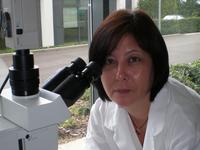
 I am delighted to share with you the news that BU’s
I am delighted to share with you the news that BU’s  Corrina and I are finally back from the land down under after attending the excellent
Corrina and I are finally back from the land down under after attending the excellent 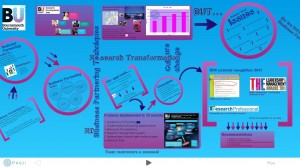
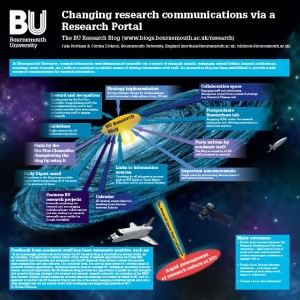

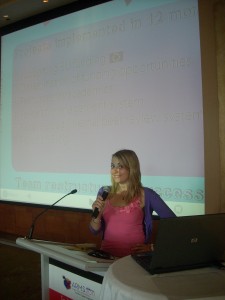
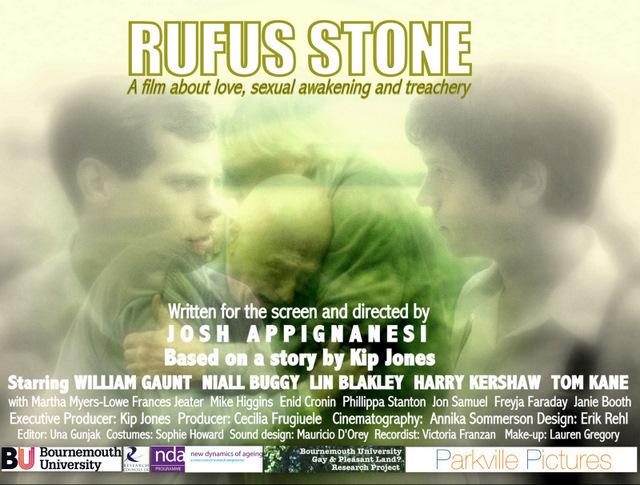
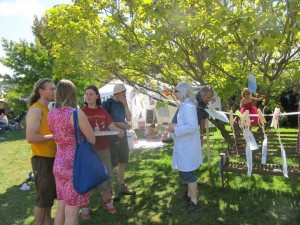 Following the BU Research Blog entry of 12th July, entitled ‘
Following the BU Research Blog entry of 12th July, entitled ‘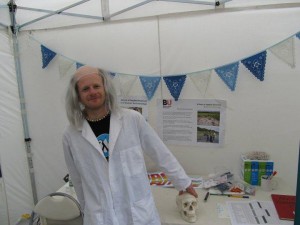
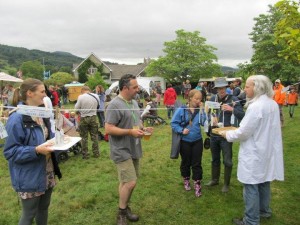 The event was massively successful with well in excess of 1,000 people of all ages visiting the stall and engaging in activities over the weekend. Feedback was hugely positive and follow up events at other festivals are already in the initial stages of planning.
The event was massively successful with well in excess of 1,000 people of all ages visiting the stall and engaging in activities over the weekend. Feedback was hugely positive and follow up events at other festivals are already in the initial stages of planning. 












 UK Turing Scheme: My student mobility programme in Nepal
UK Turing Scheme: My student mobility programme in Nepal Bournemouth University psychologists publish new book
Bournemouth University psychologists publish new book Connecting Research with Practice: FoodMAPP Secondment in Austria and France
Connecting Research with Practice: FoodMAPP Secondment in Austria and France Health promotion paper read 8,000 times
Health promotion paper read 8,000 times The Beautiful Work Challenge: On Birth
The Beautiful Work Challenge: On Birth MSCA Postdoctoral Fellowships 2025 Call
MSCA Postdoctoral Fellowships 2025 Call ERC Advanced Grant 2025 Webinar
ERC Advanced Grant 2025 Webinar Horizon Europe Work Programme 2025 Published
Horizon Europe Work Programme 2025 Published Horizon Europe 2025 Work Programme pre-Published
Horizon Europe 2025 Work Programme pre-Published Update on UKRO services
Update on UKRO services European research project exploring use of ‘virtual twins’ to better manage metabolic associated fatty liver disease
European research project exploring use of ‘virtual twins’ to better manage metabolic associated fatty liver disease